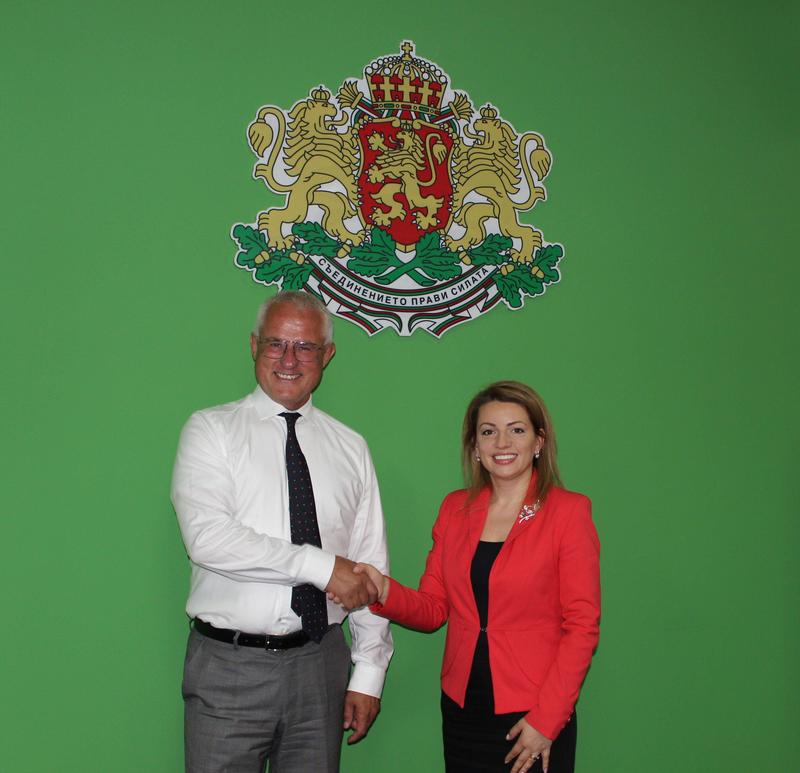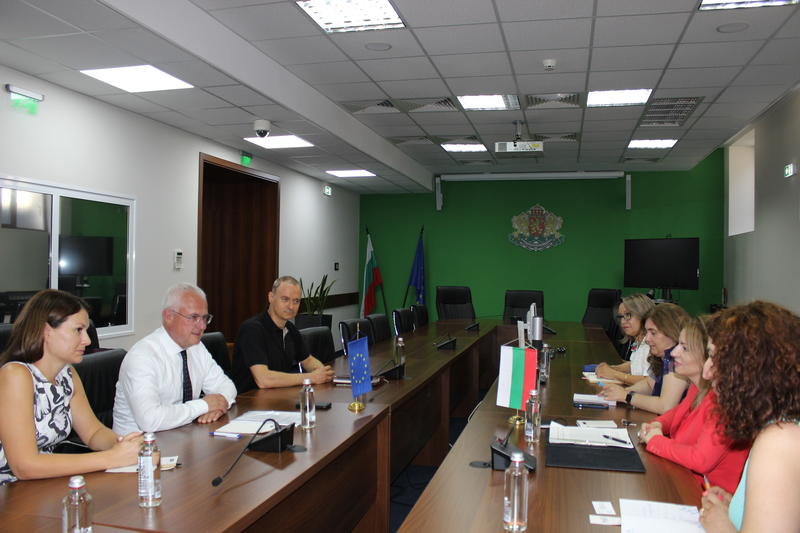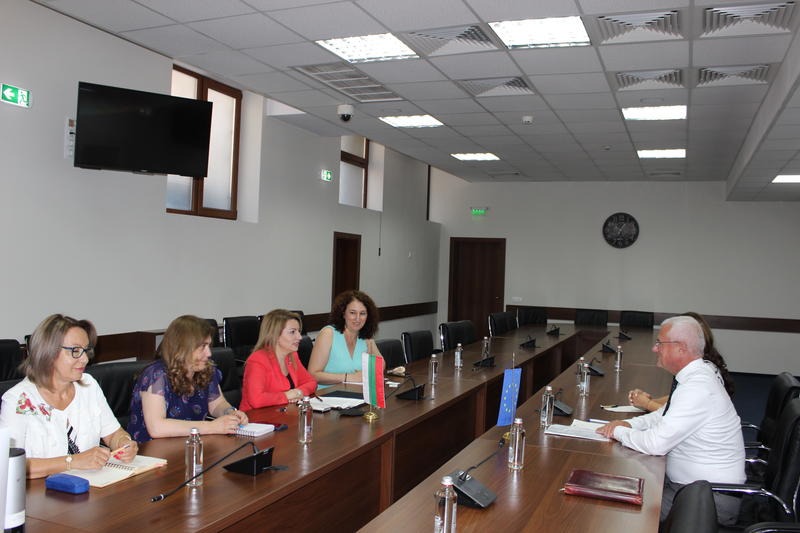Deputy Minister Reneta Koleva met with the President of the European Waste Management Association
03 Aug, 2021 | 16:15Deputy Minister of Environment and Water Reneta Koleva met with the President of the European Waste Management Association (FEAD) Peter Kurth. The Deputy Minister presented Bulgaria’s waste management policy, as well as the challenges faced by the country in the transition to circular economy.
“As an EU member state, Bulgaria is making efforts to reduce the consumption of primary raw materials and increase the amount of recycled waste. The requirements of Directive 2019/904 of the European Parliament and the Council of 5th June 2019 on reducing the impact of certain plastic products on the environment are in the process of transposition in national legislation,” said Deputy Minister Koleva. She provided information about a new national regulation, which aims to reduce the environmental impact of certain plastic products and will introduce requirements for manufacturers of certain single-use plastic products to set up separate waste collection systems. The systems must include specialized separate collection containers located in squares, alleys, parks, and other public-use areas in settlements.
Deputy Minister Koleva added that the MOEW is also developing a Strategy for transition to a circular economy for the period 2021-2027. She announced that in June the new National Waste Management Plan 2021-2028, which has a key role in the sector for efficient and effective waste management, was adopted.
Peter Kurth noted that the association is a leader in the field of waste management at the European level. He reminded that it is essential to ensure the unobstructed transport of raw materials from waste within the EU, as well as the creation of a unified waste quality system. According to him, it is important when determining the common parameters of the separate collection systems for the EU to take into consideration the specificities of the individual member states. In connection with the forthcoming adoption of a regulation on batteries and their waste, the FEAD President drew attention to their safe collection and subsequent treatment, whereby he praised the measures introduced in Bulgaria.
The challenges Bulgaria is facing in achieving the goals for recycling of municipal waste, namely to have at least 65% of waste recycled, which the country has set for 2035, were also discussed. In this regard, the topic of waste recovery and transition to zero waste deposition were touched upon. Peter Kurth shared his experience in the recovery of non-recyclable waste through incineration and the reported reductions in greenhouse gas emissions as a result, mentioning the example of Germany where carbon emissions have been reduced by 70 million tons since the ban on landfill deposition. The two agreed that to achieve the set goals requires not only political will but also broad public support. To this end, it is necessary to inform the public in detail about the benefits of separate waste collection, recycling, and recovery in an environmentally friendly way in order to prevent landfill deposition.


